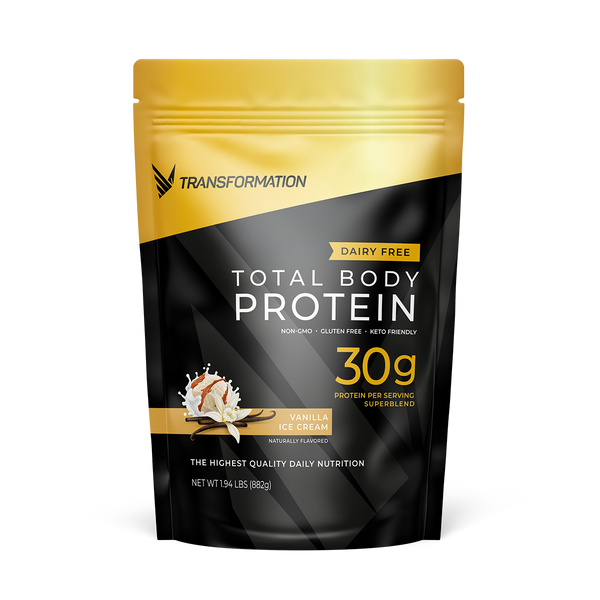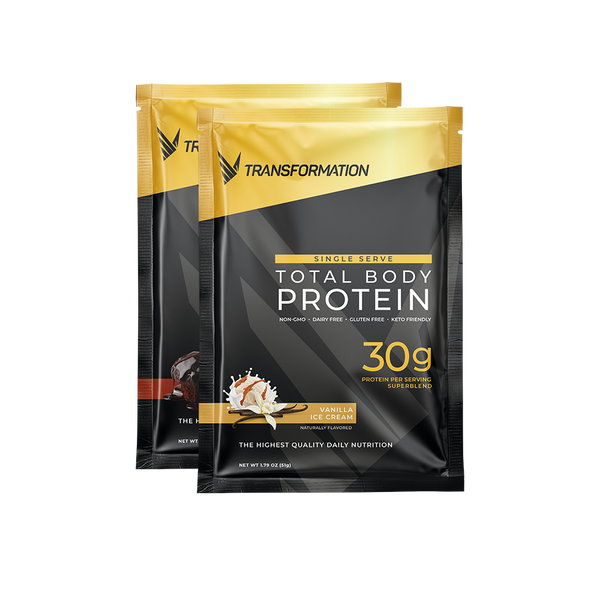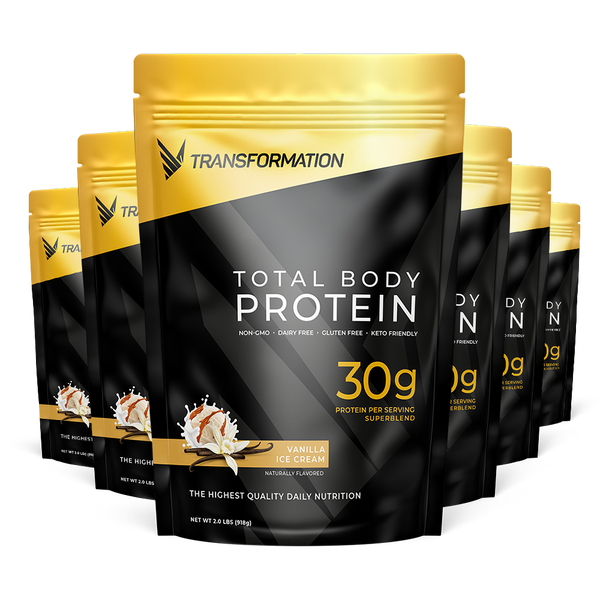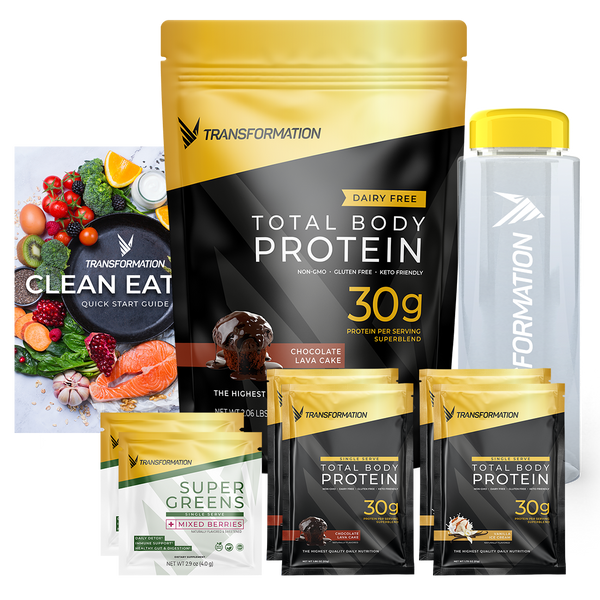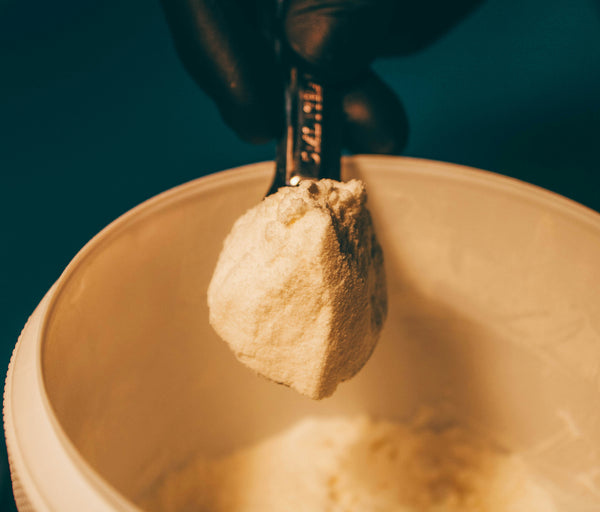
Protein Powder Storage: Tips for Extending the Shelf Life of Your Protein Powder
Despite originating from whole foods, the storage of protein powders is quite different from how their source foods are stored. Take, for instance egg white protein powders; it does not need to be refrigerated like fresh eggs do. Furthermore, the shelf life of egg protein powder surpasses that of the eggs themselves, implying that the expiry dates for protein powders and their source foods are not the same.
Maintaining the freshness of your protein powder relies heavily on appropriate storage. But where should you store your protein powder? And how can you tell if it's spoilt?
Continue reading to learn all you need to ensure optimal storage for your protein powder.
Understand Your Protein Powder
Before getting into the thick of storage, let's first try to understand protein powder. It comes in several forms, including egg white, whey, casein, soy, and others. Each powder has a unique shelf life and reacts differently to various conditions, so it's essential to know what type you're using. Whey protein, for example, is more sensitive to heat and moisture than other protein powders. It's also essential to check the expiration date on your powder before you purchase it. This will give you an idea of how long it will last and when it should be consumed.
The Do's of Protein Powder Storage
- Keep it Dry: Moisture is protein powder's biggest enemy. It can cause clumping, bacterial growth, and degradation of the powder's quality. Ensure that your container or bag is airtight to keep moisture out.
- Avoid Heat: Exposure to heat can cause your protein powder to denature, which can decrease its quality and nutritional value. Keep it away from direct sunlight and any sources of heat in your kitchen.
- Store it in a Cool Place: Storing your protein powder in a cool place is crucial for maintaining its freshness. A pantry or cabinet away from the stove or oven are good options.
- Use a Clean Scoop: Always use a clean and dry scoop to measure out your protein powder. Any moisture or bacteria on the scoop can contaminate the powder and decrease its shelf life.
Moreover, the area should be clean and free from pests or other contaminants that may compromise the quality of your protein powder. Avoid storing it near strong-smelling items, as protein powder can absorb odors and alter its taste.
The Don'ts of Protein Powder Storage
- Don't Refrigerate: While refrigerating food is generally a good idea, it's not recommended for protein powders. The constant change in temperature and humidity can lead to clumping, moisture buildup, and bacterial growth.
- Don't Freeze: Freezing your protein powder is also not advised as it can cause the same issues as refrigeration, plus it can damage the structure of the powder itself.
- Don't Mix with Liquids Until Ready to Consume: Mixing your protein powder with liquids and then storing it in the fridge or freezer can lead to bacterial growth and spoilage. It's best to mix your protein shake right before consuming it.
- Don't Store in a Humid Environment: Humidity is another factor that can cause moisture buildup, clumping, and bacterial growth. Avoid storing your protein powder in a humid environment, such as a bathroom or near the sink.
- Don't Leave the Container Open: Always make sure to tightly seal your container of protein powder after use. Leaving it open can expose it to moisture and contaminants, decreasing its shelf life.
Tips for Prolonging Shelf Life

- Buy in Smaller Quantities: If you don't use protein powder frequently, it's best to buy smaller quantities to avoid having it sit for too long and potentially spoil.
- Store in a Dark Place: Exposure to light can lead to oxidation and decrease the shelf life of your protein powder. Store it in a dark cabinet or pantry.
- Avoid Contamination: Make sure that when handling your protein powder, your hands and any utensils used are clean to avoid introducing bacteria or other contaminants.
- Check the Expiration Date: Always check the expiration date on your protein powder before consuming it. Using expired powder can lead to unpleasant side effects and decreased effectiveness.
- Consider Alternative Storage Methods: If you live in a humid climate or want to prolong the shelf life of your protein powder, consider storing it in an airtight container with a moisture-absorbing packet.
- Use in Recipes: If you have unused protein powder nearing its expiration date, consider incorporating it into recipes such as pancakes, muffins, or energy balls. This can help you use up the powder before it spoils and add some extra protein to your diet.
- Rotate Your Stock: If you use protein powder frequently, make sure to rotate your stock and use the oldest powder first. This will help prevent any powder from sitting for too long and potentially spoiling.
- Share with Friends: If you have a large container of protein powder and know you won't be able to use it all before it expires, consider sharing some with friends or family members. This can help prevent waste and ensure that the powder is consumed before it goes bad.
- Repurpose as Fertilizer: Expired protein powder can also be repurposed as a fertilizer for plants. Protein is a source of nitrogen, which can help promote plant growth. Simply mix the powder into the soil before planting or sprinkle it on top of existing plants.
Check The Packaging
Often, protein powder comes in airtight, resealable bags or tubs made of plastic or metal. These containers are designed to protect the powder from external elements. Although it's tempting to transfer the protein powder into another container, it is best to keep it in the original package unless it's damaged.
If you must replace the packaging, be sure to choose a container with a tight-fitting lid. This will keep air and moisture at bay, further prolonging the life of your protein powder.
Handling Flavored Protein Powder
Flavored protein powders, such as vanilla or chocolate, require extra attention. They are more sensitive to temperature fluctuations and can lose their flavor if not stored correctly. Therefore, always store them in a temperature-controlled environment away from direct sunlight.
In conclusion, the key to optimal protein powder storage lies in maintaining a cool, dry, dark space and effective packaging. By following these tips, you can ensure your protein powder remains fresh, tasty, and beneficial for your health goals.
Proper storage is just as crucial as the right intake for this supplement. If the taste, smell, or texture of your protein powder changes, it's better to err on the side of caution and discard it.


